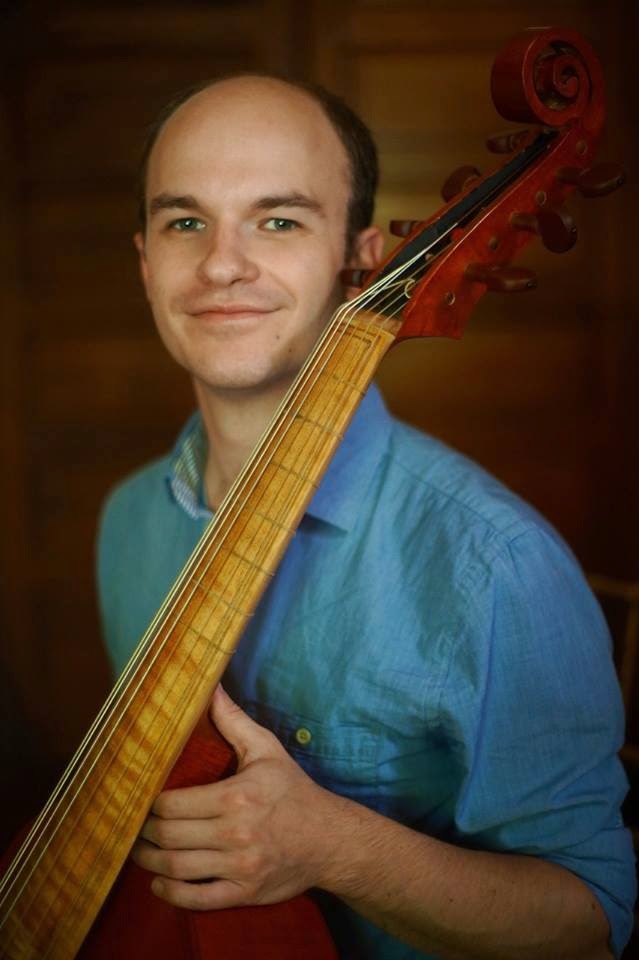The final week of Early Music Festival 2015 is upon us. If
you like opera, you’re in luck. If you
don’t, you’re still in luck.
 |
| Heinrich Schütz |
The Knox Choir under the direction of Earl Rivers has an
ongoing relationship with Heinrich Schütz – last year they presented a lovely
selection from his Symphoniae Sacrae III,
including a riveting Saul. This year they will sing some more from this
collection, as well as from his Geistliche Chormusik, as part of the 11:00 service at Knox
Presbyterian Church in Hyde Park. http://catacoustic.com/event/schutz-at-knox/?instance_id=314
CCM’s production of Monteverdi’s Poppea continues, with
performances Friday, Feb 20, Saturday, Feb 21, and Sunday Feb 22. http://catacoustic.com/event/monteverdis-lincoronazione-di-poppea-3/?instance_id=266
On Monday night at 6:00 you have another chance to hear the series of
concerts taking place at the public library branches. Annalisa Pappano of Catacoustic and this year’s
two Catacoustic Early Music Scholarship winners Cole Guillien and Stephen Goist
will play viol trios by Senfl, Isaac, Gibbons, and others. This week is at the Wyoming Branch. http://catacoustic.com/event/music-of-the-renaissance-3/?instance_id=311
Tuesday Feb 24 brings us one more noontime treat at Christ
Church Cathedral downtown. CCM professor Michael Unger’s keyboard students will
perform a potpourri of music for harpsichord and organ. The line-up will be a
surprise, but I’m reliably told to expect some Bach. http://catacoustic.com/event/keyboard-masterworks/?instance_id=264
Cincinnati Chamber Opera tackles Handel this year, after
last year’s memorable Orfeo. Handel
is one of the greatest pre-Mozart opera composers, and Ariodante is one of Handel’s best.
It will be performed twice, Friday Feb 27 and Sunday March 1, in
Wyoming. http://catacoustic.com/event/handels-ariodante/?instance_id=323
CCM’s undergraduate opera series has chosen Handel for this
year, as well. Alcina will be performed on the CCM campus four times: Friday Feb 27, Saturday Feb 28 at 2:00 and
again at 8:00, and Sunday March 1. http://catacoustic.com/event/handels-alcina/?instance_id=326
 And then we come to the final concert of the Festival, and
it will be a grand finale indeed.
Catacoustic Consort, the Festival’s sponsor, will perform a program of
sacred music from the French High Baroque, with soprano Shannon Mercer of
Toronto, pardessus, and harpsichord. The composer, Jean-Joseph de Mondonville,
was one of the greatest of his time, but he is strangely neglected these days.
And of course our own Annalisa Pappano is one of the few masters of the
pardessus working today. All this adds up to an absolutely unique evening. This
is the time of the year that we all meet by candlelight in Terrace Park. Doors will open early, so order your tickets
online and settle into the best seats for a transporting evening. http://catacoustic.com/event/my-heart-is-prepared/?instance_id=315
And then we come to the final concert of the Festival, and
it will be a grand finale indeed.
Catacoustic Consort, the Festival’s sponsor, will perform a program of
sacred music from the French High Baroque, with soprano Shannon Mercer of
Toronto, pardessus, and harpsichord. The composer, Jean-Joseph de Mondonville,
was one of the greatest of his time, but he is strangely neglected these days.
And of course our own Annalisa Pappano is one of the few masters of the
pardessus working today. All this adds up to an absolutely unique evening. This
is the time of the year that we all meet by candlelight in Terrace Park. Doors will open early, so order your tickets
online and settle into the best seats for a transporting evening. http://catacoustic.com/event/my-heart-is-prepared/?instance_id=315


















